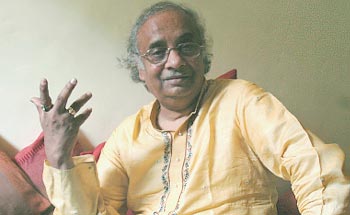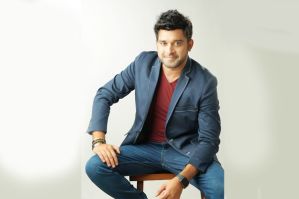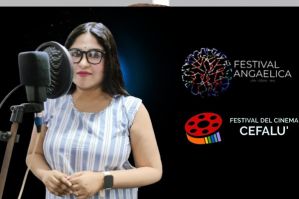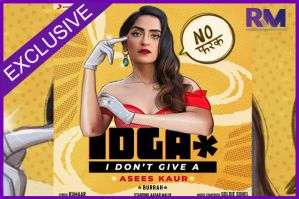Pt. Ajay Pohankar - 'I always respect those who stay true to music'

One of the most respected names in the Hindustani classical music scenario is maestro Pandit Ajay Pohankar. Hailing from the Kirana gharana, Pohankar is perhaps the only singer to have grown-up in the presence of musical greats like Ustad Aamir Khan, Pt. Bhimsen Joshi, Pt. Jasraj, Ustad Nazaquat Ali Salamuddin, Pt. Nikhil Banerjee… the list is endless.
A native of Jabalpur in Madya Pradesh, Pohankar was only eight years old when he gave his first performance at the Nagpur Conference, for which his name was recommended by none other than Ustad Aamir Khan. In a rare interview, the austere singer speaks to Radioandmusic.com's Chirag Sutar about his younger days, his observation on the changing times and a deceiting experience of bollywood which hurt him the most.
You have had a musical childhood, could you please tell us about it?
The entire music fraternity knows about it. I started at the age of eight or nine, and at that tender age I started giving concerts. My father was an advocate and a landlord. But even though he belonged to a rich family, he really loved music. In those days, rich families did not considder singing a good thing. The parents then feared – who will manage the property if the child took upt singing? Luckily, my mother Dr Sushila Pohankar who taught me singing, was from the Kirana Gharana – she is the one who has given me training in music.
There were many great musicians who visited your home… can you share how the atmosphere was then?
Ustad Aamir Khan often stayed at our place whenever he came to Jabalpur. "Un dinoo Khansaab ka aana jaana haamare bangle pe kaafi tha" Not only Ustad Aamir Khan, but each and every artiste who came to Jabalpur would visit our house as it was a good centre for musical activities. Today, people come and leave by the next flight – in those days, they used to stay for a period of three or four days or even weeks. And, even if they had a concert near Jabalpur, they would still drop by for a couple of days – that was how I got to know many artistes. My mother would often encourage me to listen to what these great musicians had to say.
My mother was a very good singer, but she couldn't take it up professionally – it was not very encouraging for women to go out and sing those days. However, my grandfather had told her that perhaps her son was destined to fulfil her wish. Sangeet Martand Pt. Jasraj also used to visit us. He considered my mother as his sister. We had everybody from musicologists to musicians to vocalists visiting our bungalow in Jabalpur. I really enjoyed my younger days in the company of all the great musicians.
This musical atmosphere really helped me groom – the values like how one should behave when musicians are around were ingrained into me. "Bade kalakaron ke saath kaisa uthna baithna karna paddta hai – sirf gaana accha hai aisa nahin .. baaki jo sab manners hote hai .." it's important to know that as well. Luckily, I got that environment in my house.
Tell us about your memorable childhood performances?
I first sang at the Nagpur conference. I was eight years old then. I was fortunate that I started with Pandits and Ustads like Ustad Nazaquat Ali Salamuddin, Nirmala Devi (actor Govinda's mother who was a renowned thumri artiste) and Pt. Nikhil Banerjee.
The first raag I sang was puriya kalyani in the Nagpur Conference– my mother had taught me that raga. I was recommended for the conference by Ustad Aamir Khan. Later, at the tender age of ten, I was invited to Bombay – again on Ustad Aamir Khan's recommendation. After that, in 1959, Pt. Bhimsen Joshi invited me for Savai Gandharva festival– I must have been around 11-12 years old then I have also sung in the Calcutta conference – it used to last for 12 days at a stretch where eminent musicians like Pt. Omkarnath Thakur , Ustad Hafiz Ali Khansab (father of Ustad Amjad Ali Khan) all used to sit in the front rows to watch the artistes perform.
I received many accolades for my performances but I don't have the habit of being pompous and blowing my own horn. I am very fortunate that I got a chance to work with such honoured artistes. Today, I know how to respect – honesty is very important for an artiste, there should be no pretentions in music and I always respect those who stay true to music.
I have read that listeners didn't allow you to get up once you started singing…
All the programmes used to go very well – they used to get several encores. There were occasions when singers used to say We won't sing after this kid has sung... now the scenario has changed so much – if a small kid sings on a reality TV, it gets hyped up. The media has a very big responsibility which it is forgetting – TRPs and everything else is OK, but we should take care that we do not spoil kids who have talent.
Listeners love the way you sing Begum Akhtar's Aye Ghame Ishq - What is the story behind singing this song in particular.
As I said, many artistes would visit our home in Jabalpur. Once Begum Akhtar was to visit our town for a concert and it seems she had heard a lot about me from other musicians. For us, it was a huge thing that Begum Akhtar had come to our place… I too was excited, and after hearing me she was very happy – I remember I had sung one of her composed thumris on that day. As a token of love and appreciation, she gave me some money after watching my performance and also said that I should sing her songs
Did you ever contemplate singing for films?
Let me share something. When the music of the film Hum dil de Chuke Sanam was in its initial stages, the music director would sit with me and take my advice for appropriate songs which would go with the various situations in that film. They would ask, This is the situation … what do you think? which song will suit it?... I suggested around five-six songs and one of them was Albela sajjan Aaiyo – it's a very old bandish – Nobody should even say that this is their own bandish.
(continues)When I made them hear it, they said, this is really a good bandish and the next day, we were supposed to record the same – but I had a concert lined up. It was later I came to know that somebody else sang it and they didn't even let me know. From that day onwards, I have given up on films. This type of behaviour really hurt me … that was when Abhijeet also decided that we work on something and then Piya Bawri happened
Before Piya Bawri became a success were you apprehensive of doing fusion?
My son's (Abhijit Pohankar) thoughts are very focused, so there was no confusion about fusion. I have been singing classical for close to 45 years, but Abhijeet suggested that we experiment with something new. He said, If you are unbiased, then you will have to sing this – first you listen and then tell me.... I agreed, because I do believe in moving with the times. I am glad that the music did well and mainly because after Piya Bawri those who where not exposed to classical music started liking it and appreciating it
Would you consider singing for films now?
Why not? but I need to be satisfied with the songs being offered at a personal level.
Many music purists adhere to only one particular gharana… what is your opinion?
It's not that only my gharana is �great' – when it comes to singing, I believe that one should hear singers from all the gharanas – and whatever one can imbibe, one should. It's imperative that you accept good qualities of other musicians – if you cannot accept them, than you're not a good musician yourself. I really respect and admire Lata didi (Lata Mangeshkar) and Asha didi (Asha Bhosle) – acche sur lagne ke baad toh dushman bhi bolta hai .. kya baat hai .. but, the attitude of pulling other people down and then moving ahead is really bad … and that I feel is happening now. Musicians are feeling insecure - there are so many unions these days, but I don't see any musicians' union.
Do you think there is a need for it?
When ten good musicians come together, doesn't it become more delightful? – we have such a rich culture – I do feel there is a need for a �union' because there are good people, but one needs to find them After all, it's a responsibility of musicians too. There is a huge reservoir of classical music but I would request all musicians that all the different forms of music be given proper exposure. For instance, Art and Artistes is doing a brilliant job on this front. Durga Jasraj has done a brilliant job by giving a platform to the different genres.

















